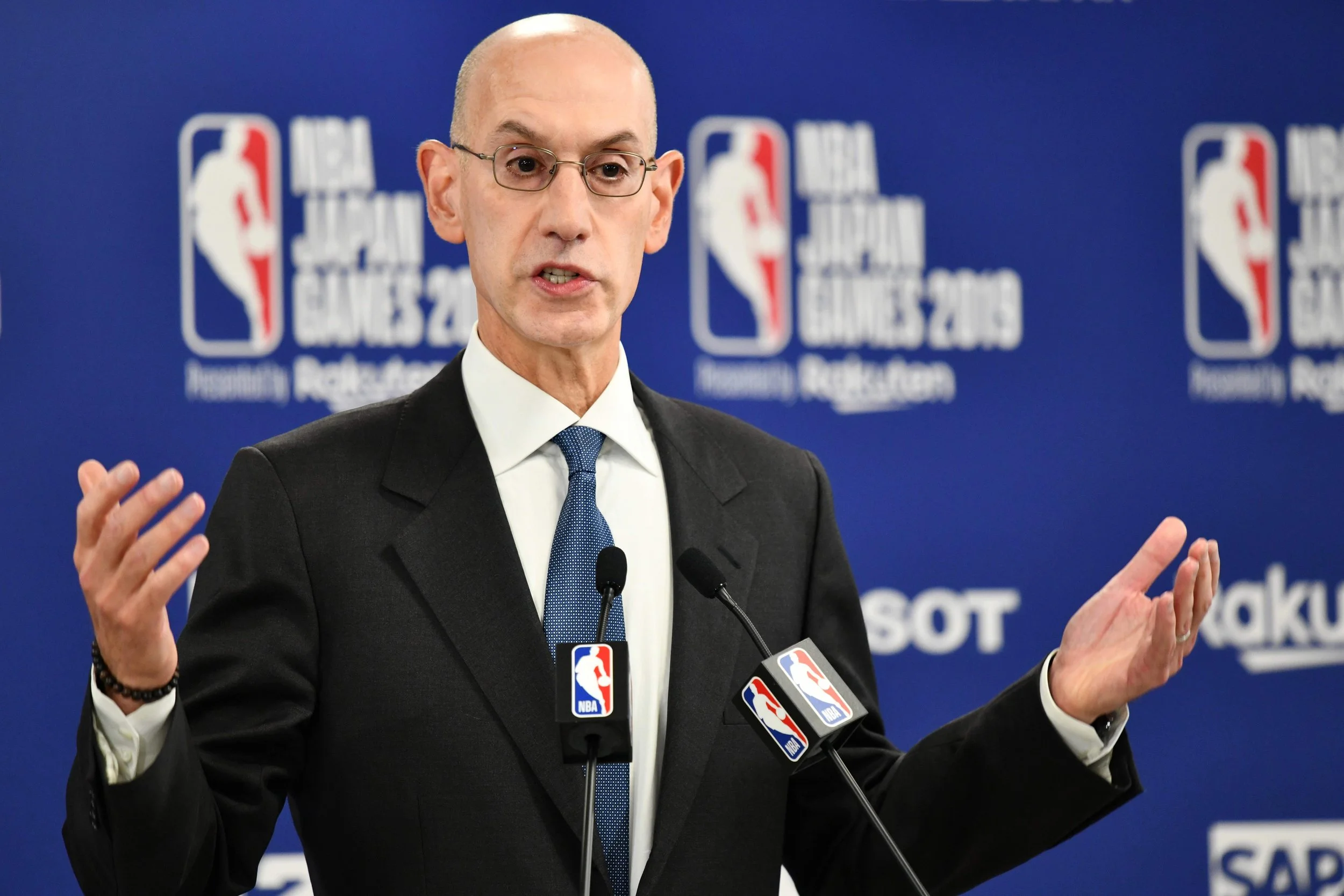NBA Implements Rule Changes for the 2023-24 Season
Photo Credit: Elijah Shama via CNBC
To fans' dismay, the art of flopping has integrated itself into the NBA. It is difficult to sit through an NBA game without becoming frustrated at the sheer volume of flops, ultimately slowing the game down and detracting from its beauty. A once pure and fast-paced game has been replaced by embellished contact and more whistle-blowing than ever before. Current players even incorporate flopping into their practice regimen to draw more foul calls in games. Rightfully so, league commissioner Adam Silver has instituted a new policy to minimize flopping and expedite the game.
A player that commits the act of flopping will be awarded a non-technical foul, and the opposing team will be given a free throw. A second flopping call will equate to a second technical foul for the player, subsequently leading to an ejection. Now that the stakes have been raised, the hope is that this will discourage players from flopping so frequently. Conversely, it will be interesting to see how and when officials decide to attribute this call to a player. During a physical game that contains some of the strongest and fastest men on the planet, it can be challenging for officials to differentiate between a flop and genuine contact in real time. It would be disappointing to see this rule change contribute to even more delayed replay reviews.
Additionally, the league will now grant a coach the option to call for a second challenge in the event of a successful first challenge. This addresses the previous issue in which coaches were reluctant to challenge a call early on in the game so that they could wait for a more consequential call down the stretch. While this also ensures a more accurate and fair experience, I am concerned that this could potentially further slow the game down with more replay reviews. However, Adam Silver and the NBA have seemingly decided that accuracy takes precedence over game speed. A constant tradeoff between these two factors sparks debates amongst fans, players, and organizations. Going forward, which factor do you believe the NBA should prioritize?
